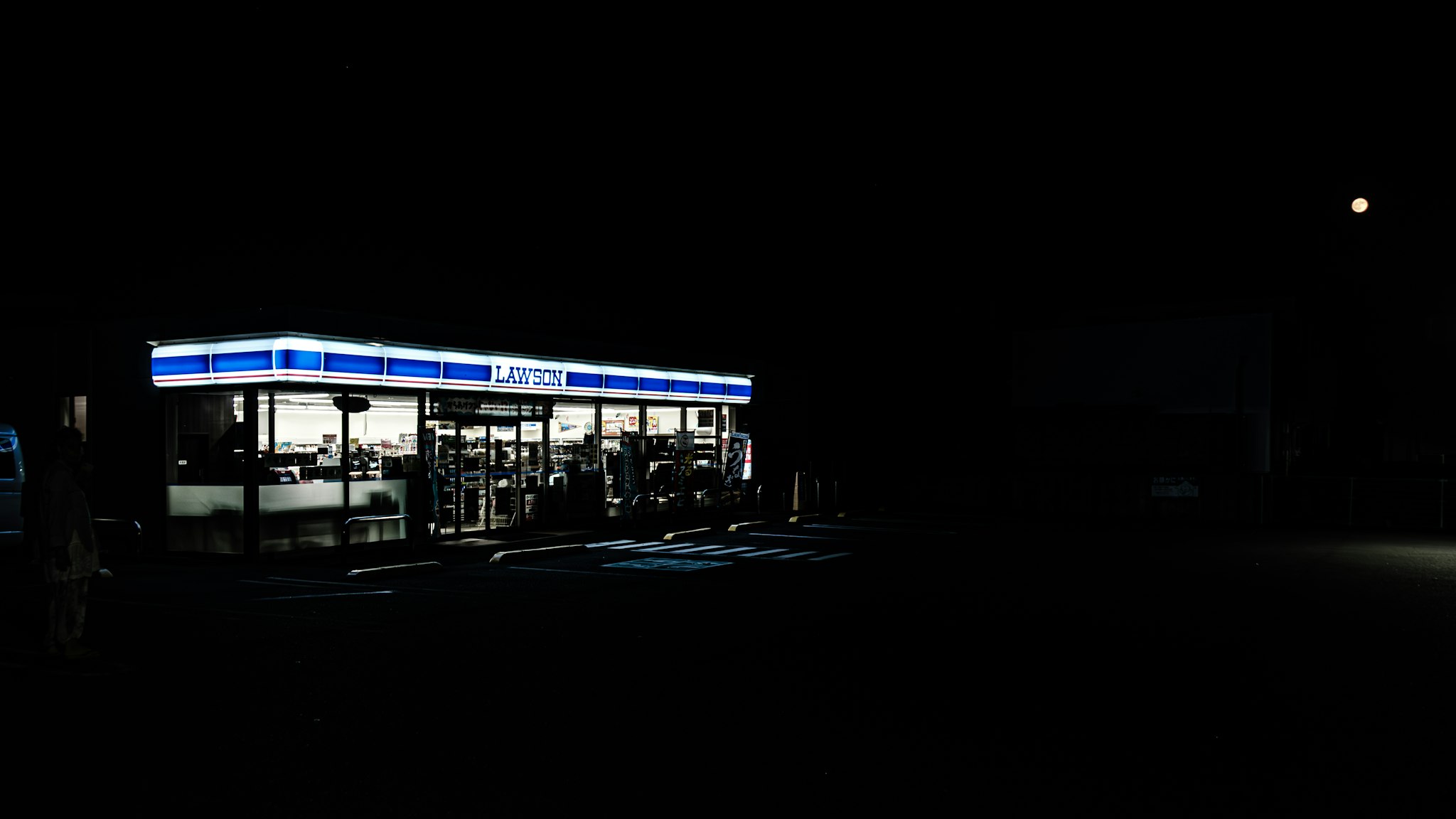A konbini and the moon
I remember that when I learned about the idea of non-place I teetered.
At the risk of risking a tongue-twister: there are the places-places, those that have an identity, where the people who frequent them set up relationships, with other people, with animals, if any, even with the place itself. The place-place par excellence, I would say, is, for you, your home.
Then there are the places non-places: the ones you pass by and go to, the ones you don't remember well the next day. For example, airports, shopping malls, Ikea, Burger King and the like, places that are endlessly replicable, which marketing asks, at best, to give you a sense of familiarity, acquired, like a flavor you learn about, after the first time you tasted it, and it's always the same, rest assured: the Big Mac®, in one sense, is itself a non-food.
It goes without saying that once I made the discovery, I never stopped cataloguing what is place and what non-place. Thus, I thought, simplifying, before I left for Japan, that konbini were non-places.
konbinis are small supermarkets, but that's reductive: a konbini is a small, widespread supermarket, usually part of a chain that has tens of thousands of konbinis. It is a supermarket, but it also sells cigarettes, there is always a photocopier, an ATM, I think there was a fax machine, until recently, there are toilets, you can use them even if you don't buy anything. There are garbage cans, which are rare in Japan, and usually, you take the garbage home.
Some konbini send packages, but you have to speak Japanese to explain where to send them. Some konbini have lockers, where you can leave things. There are newspapers, in konbini, some fresh food, bananas, a corner with a counter to lean against to eat while looking out.
There are konbini all over the city, but also along the roads in countryside: the city ones fit the tight spaces available, the other ones seem cookie-cutter and have a parking lot around them, usually. So many people park, leave their cars on, in the boundless summer mugginess, so as not to lose the advantage-well-being of air conditioning. In the konbini they will find fresh air, sometimes too much so.
konbinis are named for a linguistic turn of phrase that, when you think of it, is endearing and sounds like a puzzle. konbini is the transliteration into Western characters of the Japanese word コンビニ. It is written using phonetic characters from an alphabet called katakana, the one used for words that come from abroad, which must sound like the foreign words they are inspired by. For konbini, the sound is that of the beginning of the English “convenience store”: convenience says it is always available (and in fact, a many konbini are open even at night), and it is within reach (in fact there are so many konbini that it is almost scary).
But I was simplifying, thinking before I left that konbinis are non-places: I was wrong, or at least I think I was. They are non-places in their shape: they are all the same and, no doubt, reassuring. But you have to look at the substance, of things, of konbinis.
There are konbini that, for people who live nearby, are like kitchens, which sometimes don't exist, in the very small houses of Japanese metropolises. And so people go down to the konbini for a moment to buy and heat up dinner. There are konbini that after earthquakes, which are frequent, become aid distribution points. Some konbinis, I read, want to train staff so that they know how to take in elderly people, so many in this long-lived country, and help them when they are confused.
- Camera: X-T2
- Lens: XF18-135mmF3.5-5.6R LM OIS WR
- 18mm
- ƒ/3.5
- 1/30s


